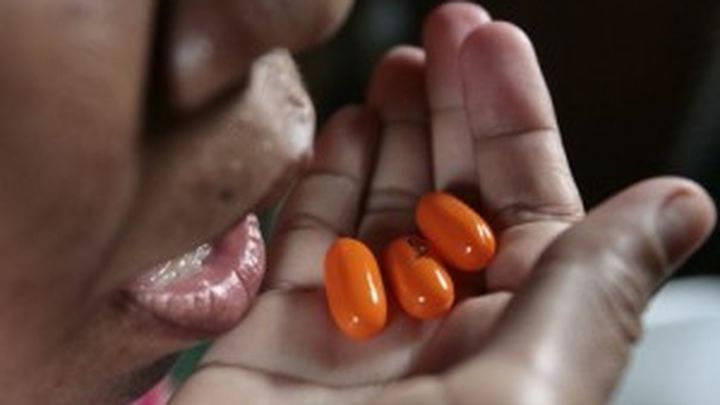
Supporting HIV Treatment in South Africa
Through
my job at Wieden & Kennedy NY, I have been selected
to participate in a program called The International Exchange (TIE), a leadership development program that combines the
expertise of communications professionals with the needs of
non-profit/non-governmental organizations to create positive sustainable
change.
As a
result, I'm headed to Pretoria, South Africa this July to work for a month with
the South Africa National Department of Health and the Clinton Health Access
Initiative (part of the Clinton Foundation). During my time there, I will be helping
to provide a better sense of what is working with a recent campaign that they
launched (more info below), as well as what is not working and where to focus
energies. I'll also help to recommend how they can improve their
communications to date, and where they can strengthen the message to ensure
that it's being clearly received by the correct people.
Now,
the reason why you're on this page!
As part
of TIE, participants are required to fundraise all or part of the research/advertising/marketing
budget that will be used to fund the work we do in our placements abroad. Additionally,
anything that I raise that is not needed for the campaign research that I'll be
doing, I will be donating directly to the Bill & Melinda Gates Foundation,
which focuses on improving people's
health in developing countries and giving them the chance to lift themselves
out of hunger and extreme poverty. Many of their grants focus on the issue of
HIV prevention and eliminating the spread of AIDS.
I would
love your help in supporting this crucially important cause and my work in
South Africa this July.
For
those interested, here's some more detailed information:
Changing the HIV
Treatment in South Africa
South Africa is home
to the world's largest population of people living with HIV, approximately 5.5
million people as estimated in 2010. In 2004, the South African National
Department of Health introduced the public
antiretroviral treatment (ART) program and by the end of 2011 there were approximately
1.7 million patients in treatment.
Antiretroviral therapy (ART) previously consisted of the use of
at least three antiretroviral drugs to maximally suppress HIV, the virus, and
stop or slow the progression of HIV disease. On November 29th, 2013 National Minister of Health Aaron Motsoaledi
announced the proposition for a fixed-dose combination (one drug tablet) of
antiretrovirals. This was approved. "This in simple language means that a
patient does not have to take three tablets twice a day and can now take one
tablet once a day," explained Motsoaledi in the press release.
The change took effect on April 1st, 2013.
This exciting news will revolutionize the way patients take their
treatment. However, patients still need to be assured they will continue to
receive a high quality of care with the new method of treatment, understand that
this won't have an effect on their health, and that it is a decision to
decrease their pill burden and effectively improve their quality of life.
Therefore, NDOH and CHAI launched an awareness campaign to educate patients on
the benefits of this change. The two groups have asked for TIE to help hone the
communications post-launch, based on collected learnings since the message has
been out "“ this is what I'll be doing in July!
Clinton Health Access Initiative (CHAI)
http://www.clintonfoundation.org/main/our-work/by-initiative/clinton-health-access-initiative/about.html
This arm of the Clinton Foundation is a trusted adviser to governments, helping
them transform the way they provide health care to their people. CHAI
directly supports the NDOH activities in South Africa and has staff supporting
the NDOH with drug procurement, maternal and child health, HIV/AIDS
programming, monitoring and evaluation, HIV counseling, laboratory management,
and immunization. CHAI assisted with the drug procurement tender and is
therefore well placed to consult on the communications strategy alongside the
NDOH counterparts and other members of civil society.
The International Exchange (TIE)
http://www.theinternationalexchange.co.uk/what-is-tie/